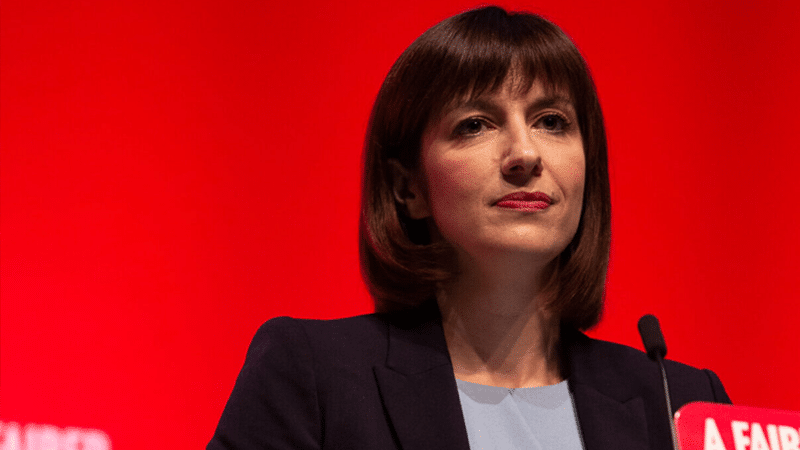Well over 100 teachers, headteachers, school governors and other educationalists have joined The Christian Institute in urging the Education Secretary to protect children from transgender ideology in schools.
In a letter to Bridget Phillipson MP, the signatories said draft guidance that safeguards pupils from ideologically driven teaching on gender and sex should be introduced as soon as possible.
Co-ordinated by the Institute, the letter called for the implementation of the 2024 version of Keeping Children Safe in Education (KCSIE), and draft guidance on both Gender Questioning Children and Relationships, Sex and Health Education.
Stonewall
Welcoming Health Secretary Wes Streeting’s decision in July to extend the temporary ban on puberty blockers, the signatories expressed concern “that this same protective approach is not currently required in schools”.
Teachers backed the removal of Stonewall-inspired phrases from KCSIE, which they said prevented schools “from acting on the risk that children who adopt a trans identity might harm themselves”.
They explained: “Because trans-identifying young people are self-medicating with irreversible cross-sex hormones obtained through the internet, we believe the draft 2024 guidance is correct in removing these Stonewall phrases”.
Keeping Children Safe in Education is the main safeguarding guidance for schools. Schools are required to have regard to it by law. On 2 September, the new Government issued this guidance for the start of term, but despite now being finalised guidance, the relevant section contains a note saying it remains under review.
Safeguarding
They also strongly criticised GenderGP, a private practice that operates from abroad, and its notorious founder Helen Webberley.
The clinic now provides information on how to circumvent puberty blocker restrictions, suggesting for example “getting the prescription created in the name of someone who is over 18”. It advertises: “Get gender-altering medications in just 3-5 days.”
In the light of these concerns, the signatories said that the guidance should make clear that “identifying as trans is sometimes a safeguarding issue where there is a risk it will lead to children self-medicating or breast-binding”.
Cass Review
The letter said the Cass Review “has considerably strengthened the case for its cautious approach to socially transitioning pupils in schools”.
The guidance on ‘Gender Questioning Children’ was therefore needed, it pointed out, as some schools were still operating “a policy of automatic ‘affirmation’” and many teachers and schools “are uncertain and disempowered in the absence of this guidance”.
In December 2023, after months of delays, draft guidance for schools on ‘Gender Questioning Children’ was published for consultation, setting out how schools should respond to children who identify as transgender.
It recommended a cautious approach. Though roundly condemned by trans activist groups at the time, its approach has since been exonerated by the Cass Report.
‘Gender identity’
Strengths of the RSHE guidance identified in the letter include the requirement for schools not to teach “gender identity”, but to teach the facts about biological sex in response to questions, and minimum age limits for more sensitive material.
In May, refreshed guidance on the teaching of Relationships, Sex and Health Education was published for consultation. It forbids schools from promoting transgender ideology – the idea that people have a gender identity that can differ from their sex ‘assigned at birth’ (in fact, biological reality recorded at birth).
The guidance also restricts explicit teaching about sexual acts in primary schools, other than in exceptional circumstances. This consultation closed just after the General Election. Final guidance has not been made available in time for the new school year.
The letter concluded by urging Phillipson “to finalise all three items of draft guidance and issue them without delay”.
Activists’ demands
During the summer, pro-LGBT groups including Stonewall demanded the Government scrap draft sex education guidance for schools altogether.
In a statement also backed by Humanists UK and the Methodist Church, LGBT activists dismissed the new guidance as a threat to “inclusion”, and claimed it fails to prepare children for “modern life”.
An accompanying briefing complained about “arbitrary age restrictions” on teaching sex education, and a lack of “recommendations on LGBT+ inclusion”, adding: “It is vital that all LGBT+ people see themselves reflected in RSHE and that information relevant to them is proactively planned into the curriculum”.
The statement lamented the ban on teaching about ‘gender identity’, but made no mention of the highly regarded Cass Review.
Irish politicians echo ‘serious concerns’ over pro-trans sex ed curriculum
NI sex ed guidance drops content on ‘trans 3-year-olds’
Wales urged to investigate national capture by trans ideology in light of Cass report


